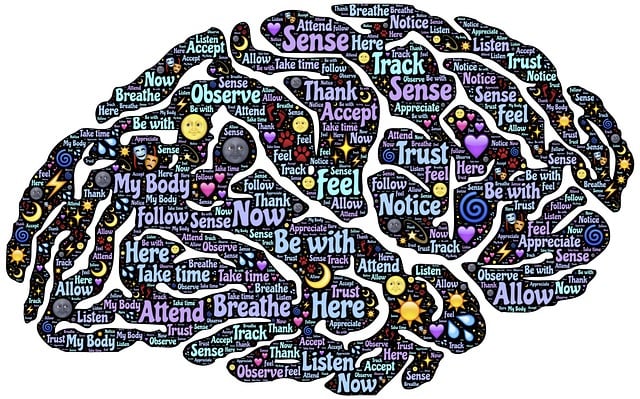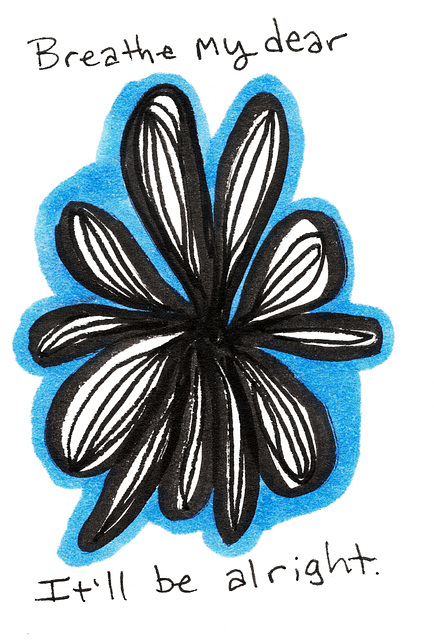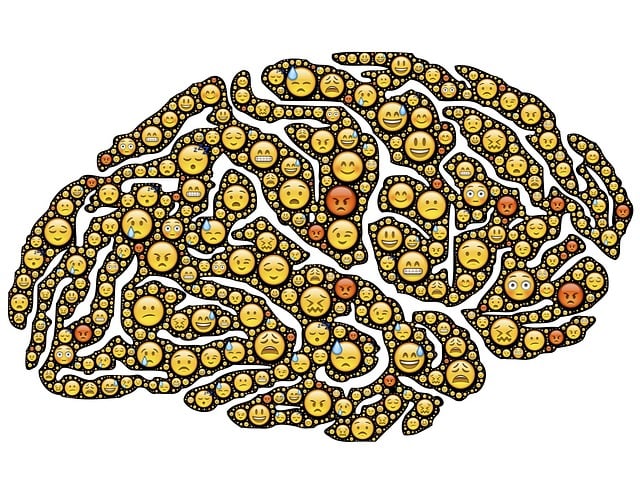Cultural sensitivity is key to providing effective mental healthcare in diverse communities like Lakewood, where polyamorous and open relationships are common. Therapists create safe spaces by respecting unique cultural beliefs, allowing for open communication and tailored strategies for emotional well-being and self-esteem improvement. This approach reduces stigma and fosters a supportive environment, especially crucial for individuals within these non-monogamous relationships. Lakewood's commitment to specialized therapy recognizes the diverse spectrum of human connections, promoting understanding, non-judgmental spaces, and emotional regulation techniques. By educating themselves about different cultural practices, therapists can integrate sensitivity into their practice, using tools like mental wellness journaling exercises to encourage honest discussions. This holistic approach ensures culturally competent care, improving access to quality mental health services for all residents in Lakewood, regardless of relationship practices.
“Cultural sensitivity is a cornerstone of modern mental healthcare, ensuring equitable and effective treatment for all. In an increasingly diverse society, understanding cultural nuances is vital to address potential biases that may hinder therapy. This article explores these dynamics, focusing on the unique challenges and opportunities in polyamorous and open relationships therapy, as exemplified by Lakewood’s innovative approach. We’ll delve into strategies for overcoming barriers, enhancing access to care for diverse communities, and promoting culturally competent practice.”
- Understanding Cultural Sensitivity in Mental Healthcare
- The Impact of Cultural Biases on Therapy
- Lakewood's Approach to Polyamorous and Open Relationships Therapy
- Overcoming Barriers: Strategies for Culturally Competent Practice
- Enhancing Access to Care for Diverse Communities
Understanding Cultural Sensitivity in Mental Healthcare

Cultural sensitivity is a cornerstone in the delivery of effective mental healthcare, especially when catering to diverse communities like those with polyamorous and open relationships in Lakewood. It involves recognizing and appreciating the unique cultural beliefs, values, and practices that shape individuals’ lives, including their perceptions of mental illness and healing processes. This awareness enables therapists to create safe and inclusive spaces where clients feel understood and respected, fostering open communication.
By integrating cultural sensitivity, therapists can adapt their Emotional Well-being Promotion Techniques and Self-Esteem Improvement strategies to align with the client’s cultural framework. It goes beyond simply offering services; it’s about understanding the social and historical contexts that influence mental health experiences, particularly in communities facing stigma associated with mental illness. Through these efforts, therapists contribute to Mental Illness Stigma Reduction Efforts, creating a more supportive environment for all individuals seeking care.
The Impact of Cultural Biases on Therapy

In the realm of mental healthcare, cultural sensitivity is paramount to ensure effective therapy for a diverse range of clients. Cultural biases, often unconsciously held by therapists, can significantly impact the therapeutic process and outcomes. These biases may stem from personal experiences, societal norms, or educational backgrounds, leading to misinterpretations or misunderstandings of client presentations. For instance, an individual from a polyamorous or open relationship in Lakewood might face challenges if their therapist holds conventional, monogamous values, potentially hindering the exploration of emotional healing processes and depression prevention strategies tailored to their unique cultural context.
The integration of Mind Over Matter principles can help mitigate these biases by fostering a more inclusive environment. By recognizing and challenging personal assumptions, therapists can create safe spaces for clients to express themselves authentically. This approach not only enhances the effectiveness of therapy but also respects the inherent diversity within communities, ensuring that emotional healing processes are culturally sensitive and accessible to all, regardless of their relationship practices or backgrounds.
Lakewood's Approach to Polyamorous and Open Relationships Therapy

Lakewood’s Approach to Polyamorous and Open Relationships Therapy is a pioneering initiative that reflects a growing awareness of the diverse nature of human relationships in mental healthcare. In addressing polyamory and open relationships, Lakewood prioritizes understanding the unique cultural context and values that underpin these arrangements. This involves extensive training for healthcare providers on enhancing cultural competency, ensuring sensitive handling of intimate details, and promoting non-judgmental environments.
The therapy program leverages public awareness campaigns to destigmatize these relationships, fostering a more inclusive mental health ecosystem. Through tailored interventions, Lakewood aids individuals, couples, and families navigating the complexities of polyamorous and open dynamics, focusing on emotional regulation strategies that are sensitive to their specific needs. This holistic approach not only validates diverse relationship choices but also empowers participants to lead authentic, fulfilling lives.
Overcoming Barriers: Strategies for Culturally Competent Practice

Overcoming barriers to culturally competent practice is essential for mental healthcare professionals, especially in diverse communities like Lakewood, where polyamorous and open relationships are not uncommon. To foster an inclusive environment, therapists should educate themselves about different cultural practices, beliefs, and values. This knowledge enables them to create safe spaces that respect individual differences, encouraging clients to openly discuss their experiences without fear of judgment.
One effective strategy is to integrate cultural sensitivity into the therapeutic process through active listening, open-mindedness, and adaptability. For instance, a therapist could incorporate mental wellness journaling exercises tailored to diverse populations, providing a means for clients to express themselves honestly. Moreover, risk management planning should consider cultural factors to prevent burnout, ensuring professionals are equipped to handle unique challenges that may arise from navigating different cultural contexts, such as those encountered in Lakewood Polyamorous and Open Relationships Therapy.
Enhancing Access to Care for Diverse Communities

In a diverse society like Lakewood, where polyamorous and open relationships are increasingly recognized, ensuring cultural sensitivity in mental healthcare is paramount. Providing accessible care tailored to the unique needs of these communities requires a deep understanding of their cultural contexts and values. For instance, integrating knowledge about polyamory into therapeutic practices can enhance the comfort level of clients, fostering honest discussions that lead to more effective treatment plans.
By prioritizing cultural sensitivity, mental health professionals in Lakewood can significantly improve access to care for diverse populations. This involves offering specialized services like therapy focused on polyamorous and open relationships, ensuring individuals receive support tailored to their specific circumstances. Moreover, this approach promotes positive thinking and anxiety relief by creating a safe space where clients feel validated, encouraging them to seek help without fear of judgment or misunderstanding. Effective crisis intervention guidance can also be provided, addressing the unique challenges these communities may face in accessing quality mental health services.
Mental healthcare professionals must embrace cultural sensitivity to provide effective treatment, especially in diverse communities. As evidenced by Lakewood’s innovative approach to polyamorous and open relationships therapy, acknowledging and understanding cultural nuances can revolutionize care. By recognizing the impact of cultural biases and implementing strategies to overcome barriers, therapists can foster inclusive environments that cater to a wide range of identities and beliefs. This not only enhances access to mental health services but also ensures that all individuals receive culturally competent care tailored to their unique needs.














